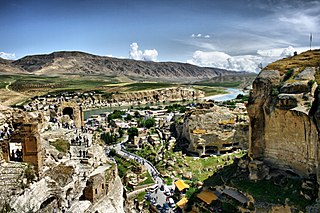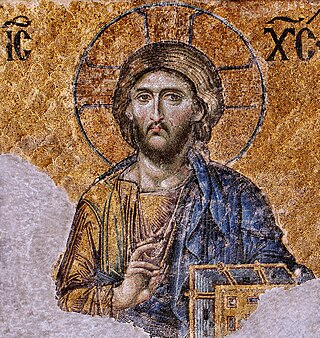
Kurds or Kurdish people are an Iranic ethnic group native to the mountainous region of Kurdistan in Western Asia, which spans southeastern Turkey, northwestern Iran, northern Iraq, and northern Syria. There are exclaves of Kurds in Central Anatolia, Khorasan, and the Caucasus, as well as significant Kurdish diaspora communities in the cities of western Turkey and Western Europe. The Kurdish population is estimated to be between 30 and 45 million.

Batman Province is a province in Turkey. It was created in May 1990 with the Law No. 3647 taking some parts from the eastern Province of Siirt and some from the southern Province of Mardin. Its area is 4,477 km2, and its population is 634,491 (2022). Its current governor is Ekrem Canalp.

Adıyaman Province is a province in the Southeastern Anatolia Region of Turkey. The capital is Adıyaman. Its area is 7,337 km2, and its population is 635,169 (2022). The province is considered part of Turkish Kurdistan and has a Kurdish majority.

Iğdır Province is a province in eastern Turkey, located along the borders with Armenia, Azerbaijan, and Iran. Its adjacent provinces are Kars to the northwest and Ağrı to the west and south. Its area is 3,664 km2, and its population is 203,594 (2022). Its population was 168,634 in 2000 and 142,601 in 1990. The province is considered part of Turkish Kurdistan and has a Kurdish majority with a pretty close Azerbaijani minority.

Bingöl Province is a province of Turkey. The province was known as Çapakçur Province before 1945 when it was renamed as Bingöl Province. Its area is 8,003 km2, and its population is 282,556 (2022). The province encompasses 11 municipalities, 325 villages and 693 hamlets.

Islam began to make inroads into the Armenian plateau during the seventh century. Arab, and later Kurdish, tribes began to settle in Armenia following the first Arab invasions and played a considerable role in the political and social history of Armenia. With the Seljuk invasions of the eleventh and twelfth centuries, the Turkic element eventually superseded that of the Arab and Kurdish. With the establishment of the Iranian Safavid dynasty, Afsharid dynasty, Zand dynasty and Qajar dynasty, Armenia became an integral part of the Shia world, while still maintaining a relatively independent Christian identity. The pressures brought upon the imposition of foreign rule by a succession of Muslim states forced many lead Armenians in Anatolia and what is today Armenia to convert to Islam and assimilate into the Muslim community. Many Armenians were also forced to convert to Islam, on the penalty of death, during the years of the Armenian Genocide.

The Kurdish population is estimated to be between 30 and 45 million. Most Kurdish people live in Kurdistan, which today is split between Iranian Kurdistan, Iraqi Kurdistan, Turkish Kurdistan, and Syrian Kurdistan.
Şirvan is a municipality in the Şirvan District of Siirt Province in southeastern Turkey. It is populated by Kurds of the Silokan and Sturkiyan tribes and had a population of 3,958 in 2021.
Minorities in Iraq have been incredibly influential to the history of the country, and consist of various ethnic and religious groups. The largest minority group in Iraq is the Kurds, with Turkmen following shortly after. Prior to the 2003 invasion of Iraq, Assyrians constituted a sizeable population of 1.5 million, and belonged to various different churches such as the Assyrian Church of the East, Chaldean Catholic Church, and the Syriac Orthodox/Catholic Churches. Other minority groups in Iraq include Armenians, Mandaeans, Baha'i, and Marsh Arabs, among others.

Armenian–Kurdish relations covers the historical relations between the Kurds and the Armenians.

Tell Abyad is a town in northern Syria. It is the administrative center of the Tell Abyad District within the Raqqa Governorate. Located along the Balikh River, it constitutes a divided city with the bordering city of Akçakale in Turkey.

Christianity in Turkey has a long history dating back to the early origins of Christianity in Asia Minor during the 1st century AD. In modern times the percentage of Christians in Turkey has declined from 20-25% in 1914, to about 2% in 1927, to 0.2–0.4% today Sources estimate that the Christian population in Turkey ranges between 180,000 and 370,000. However, the exact number remains unclear due to the absence of a religious census in the country. The percentage of Christians in Turkey fell mainly as a result of the late Ottoman genocides: the Armenian genocide, Greek genocide, and Assyrian genocide, the population exchange between Greece and Turkey, the emigration of Christians that began in the late 19th century and gained pace in the first quarter of the 20th century, and due to events such as the 1942 Varlık Vergisi tax levied on non-Muslim citizens in Turkey and the 1955 Istanbul pogrom against Greek and Armenian Christians. Exact numbers are difficult to estimate, as many Turkish former Muslim converts to Christianity often hide their Christian faith for fear of familial pressure, religious discrimination, and persecution.
Dağlıca is a village in Yüksekova District of Hakkâri Province in southeastern Turkey. It is located by the river Oramar, a tributary of the Great Zab. The village is populated by Kurds of the Oramar tribe and had a population of 570 in 2023.

Yazidis, also spelled Yezidis, are a Kurdish-speaking endogamous religious group indigenous to Kurdistan, a geographical region in Western Asia that includes parts of Iraq, Syria, Turkey, and Iran. The majority of Yazidis remaining in the Middle East today live in Iraq, primarily in the governorates of Nineveh and Duhok.
Massacres of Diyarbakır were massacres that took place in the Diyarbekir Vilayet of the Ottoman Empire between the years of 1894 and 1896 by Muslims, a majority of whom were ethnic Kurds. The events were part of the Hamidian massacres and targeted the vilayet's Christian population – mostly Armenians and Assyrians.
Hidden Armenians or crypto-Armenians is an umbrella term to describe Turkish citizens hiding their full or partial Armenian ancestry from the larger Turkish society. They are mostly descendants of Ottoman Armenians who, at least outwardly, were Islamized "under the threat of physical extermination" during the Armenian genocide.

The main religions that exist or historically existed in Kurdistan are as follows: Sunni Islam & Shia Islam. Overall today, Sunni Islam is the most adhered to religion in Kurdistan.

Tunceli Province, formerly Dersim Province, is a province in the Eastern Anatolia Region of Turkey. Its central city is Tunceli. The province is considered part of Turkish Kurdistan and has a Kurdish majority. Moreover, it is the only province in Turkey with an Alevi majority. The province has eight municipalities, 366 villages and 1,087 hamlets.

Kobani, officially Ayn al-Arab, is a Kurdish-majority city in northern Syria, lying immediately south of the Syria–Turkey border. As a consequence of the Syrian civil war, the city came under the control of the Kurdish-majority People's Protection Units (YPG) militia in 2012 and became the administrative center of the Kobani Canton, later transformed into Euphrates Region of the Autonomous Administration of North and East Syria.

Çığlı is a village in Hakkâri Province in southeastern Turkey. It is located in the district of Çukurca District and the historical region of Hakkari. It had a population of 1,911 in 2023.













